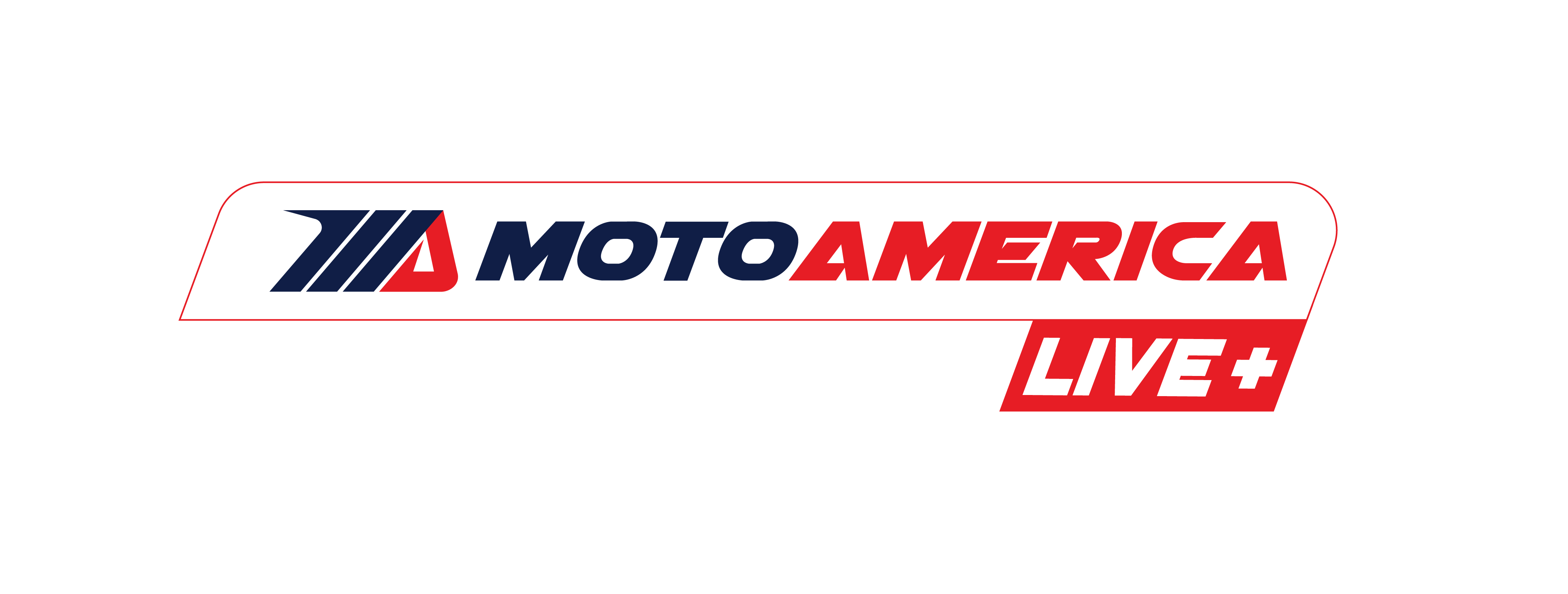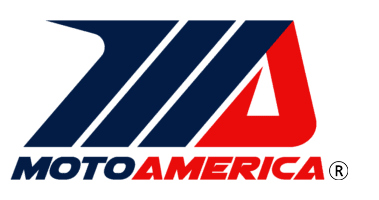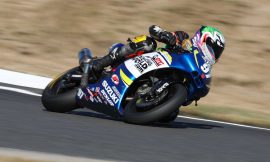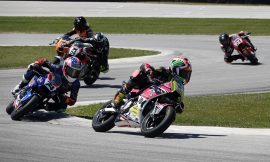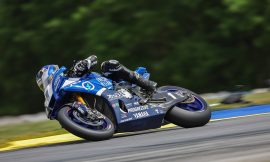The following is the third in our 21 in ’21 features that highlight one of the 21 AMA Superbike Champions each week as we move through the 2021 MotoAmerica season – the 45th year of the premier class championship.
If the Superbikes of the early 1980s were “big ships” as Eddie Lawson refers to them, then Lawson was the captain of those vessels for two years as he ruled the seas of the AMA Superbike Championship in consecutive seasons in 1981 and 1982.
“They were just big, huge ships. Really heavy,” Lawson says of the Kawasakis, Hondas and Suzukis that battled for Superbike supremacy in the early years of the class. “The tires were so hard that there was no grip, but it was the same for everybody so that’s what was fun. It was the latest technology. When you look at that stuff you just think, ‘why would you even ride something like that?’ But it’s what we had in the day. It was a lot of fun. It was a different time where we could just experiment. We had to cut the frames up and try different things, trying different shocks. It was just a fun time where everything was just a big learning curve. It evolved into what it is today. We started it all.”

Lawson came to road racing from the dirt tracks of Southern California. He also rode two-stroke 250s in both club and AMA road racing early on, but it was the big Superbikes that jump-started his career – a career that resulted in four 500cc World Championships.
“My first factory ride was (with) Kawasaki back in 1980,” Lawson recalls. “We came up short. We finished second that year to Wes Cooley. Then in ’81 and ’82, like you said, we were able to pull it off. The racing was fierce. We had Honda, Suzuki, Kawasaki going at it. It was big. We all just hated each other, and we wanted to win really badly. If you think about who was involved at the time, we had Freddie Spencer and Mike Baldwin and Wes Cooley. There was a lot of guys. Wayne Rainey. It was pretty hot and heavy. So, it was fun. It was really when Superbike took off, and it looks like it’s coming back to that, which is really great to see.”
Those early Superbike seasons featured battles between manufacturers and those years also saw the beginning of the Eddie Lawson/Freddie Spencer rivalry that would eventually make its way across the Atlanta to Europe and 500cc Grand Prix racing.
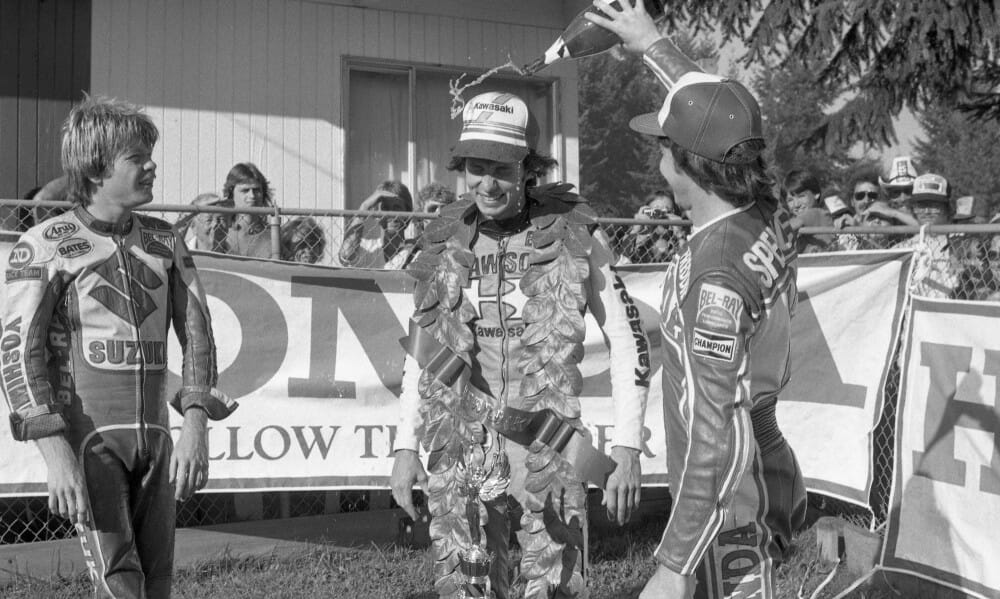
“Especially with Freddie (Spencer), Honda had thrown everything at it,” Lawson said. “Their budget was probably triple what Suzuki and Kawasaki (were spending). They wanted it pretty badly. Every race, we were really surprised that we were hanging right there with him, but we had Rob Muzzy. That was our ace in the hole right there. He made things run. We could hang with the Hondas, so we were able to race with him. Not one particular race (stands out) to answer your question, but there were some good ones. I guess one in particular, Washington. I passed Freddie in the grass and luckily there wasn’t a lip to get back on the track. I beat him by maybe a wheel-length, maybe.”
Lawson ended up winning four AMA Championships with two of those coming on 250cc GP bikes.
“We won ’80 250 and ’81, and then we stopped the 250 and concentrated on Superbikes,” Lawson said. “But yeah, we won four National Championships in three years with Kawasaki. So, it was fun times. The whole U.S. Kawasaki was really into it at the time. We would go to all the dealerships before the race. The dealers were into it. It was a fun time. I look back with fond memories because everybody was so enthusiastic, especially everyone at Kawasaki. They were just 100 percent behind racing, and that was fun.”
There is no doubt that riding big, over-horsepowered Superbikes in spindly chassis made for not only wild racing, but prepared riders like Lawson, Spencer and Wayne Rainey for the big time and they all headed to Grand Prix racing with enough moxie to win 10 World Championships between them. Lawson knows that cutting his teeth racing those bikes against stout competition is what honed his skills as a road racer and ultimately led him to the ultimate prize in road racing.
“Absolutely. That’s what it was about,” Lawson said. “You had to go through that. If you won a Superbike Championship, then the factories were looking at you to go to Europe to race the 500s. So, if I hadn’t have won two Superbike Championships, I don’t think I would have ever made it to the 500s. So, I’m glad I went that route.”
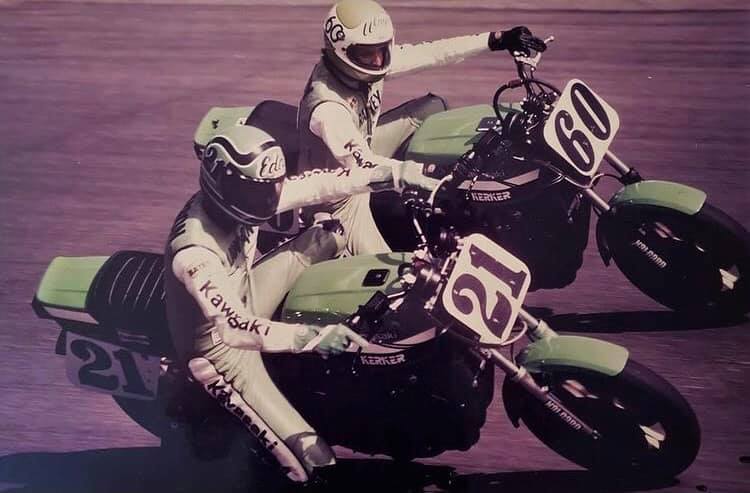
That route was Europe and the 500cc World Championship. Lawson’s stint there lasted for 10 years with three different manufacturers. He won four World Championships and his status as a legend was cemented.
“I went over with Kenny (Roberts) in ’83 and I raced there for 10 years,” Lawson said. “I was Kenny’s teammate in ’83. He retired right after that. I was with Yamaha for six years. We won three championships. Went to Honda the next year. We won a championship with Honda. Then I finished out my career with Cagiva. It was a lot of fun. I have no regrets. It was a wonderful time. We won four world championships when it was all said and done. A lot of fun.”
With the competitive fire still burning, Lawson retired from motorcycle racing – but not from racing entirely.
“It was funny. After I retired with bikes, I got to ride a tryout in Indy lights car,” Lawson said. “I had never really messed with cars, but I just thought it was amazing… the feeling. The G forces and the braking. I really enjoyed that. I tried that for a little bit, but you need big sponsorship money to do that. I didn’t want to go chase that, but I did enjoy the cars.”
While he “enjoyed” the cars, Lawson lived – and still lives – for motorcycles.
“I just eat, breathe motorcycles,” he said. “I just live it. I guess to answer your question there, when I was a little kid, I was about seven years old and the first time I rode a motorcycle I just thought it was the greatest thing I had ever done. I wanted to do it every day. So, I had the passion. Here I am 63 and I can’t wait to put my KX250 in the back of the van and go ride dirt bikes. I have that same passion. So, motorcycling is just my life. I love to do it as much today as when I was a kid. How many things that you do in life that you can say? I don’t know. I don’t know of stick-and-ball sports or guys who play that or tennis or golf, if they loved it as much today as they did when they were a kid. Maybe, but I know I do with motorcycles. I love watching you guys. I watch MotoAmerica. I watch every race. It’s awesome. I’m glad it’s coming back. I’m glad Wayne (Rainey) got it going and we have the kind of racing we have today like we did back in the ‘80s. I think it’s awesome that we’re back there again.”
So, at 63 years of age, the competitive spirit lives on, even though the speed has diminished.
“Yeah. At 63, that’s all gone,” Lawson said. “I love to go ride the bike because it’s fun. If somebody goes by me at a million, I’m just like, ‘have fun.’ I go this speed. I have fun. That’s all gone. I ride my bicycle. I love to get out in the desert here where I live. I ride about every day and that’s a blast. I got it all out of my system, I guess. Been there, done that. If somebody said, ‘Hey, we have a motorcycle. Do you want to go ride the latest GP bike?’ I’d be like, ‘Nah. Been there, done that. Thank you.’ It’s fun to watch. I love watching those kids go out there and go at it like that. But to answer your question, no. I’m good.”
Lawson now has a riding buddy that lives just a few miles down the street in Lake Havasu City, Arizona. Guy by the name of Kenny Roberts.
“I love it. I get out and we go for a trail ride,” Lawson said of his off-roading. “Kenny lives not too far from me, the same town here. We get out and we go for a little ride here and there. We just cruise. I love motorcycles. I don’t know what more to say other than I want to be on one and riding one. I don’t care if it’s streetbike, dirt bike, whatever it is.”
One final question, Mr. Lawson. Since you were really in the early days of Superbike and you’ve seen the ebbs and flows of the popularity of the class, the racing, all those things, did you think back in 1982 after you won your second championship, and you were off to race the world, that you would see Superbike racing evolve into what it is today?
“No. It had its ups and downs, of course,” Lawson said. “There for a while it looked like it was just nose-diving in. Now MotoAmerica has brought it back, and that’s what’s so exciting to see. I’m glad you guys have turned it around. It’s fun to watch. I’m glad to see it back to what I know, back in the day. It looks like that again.”


